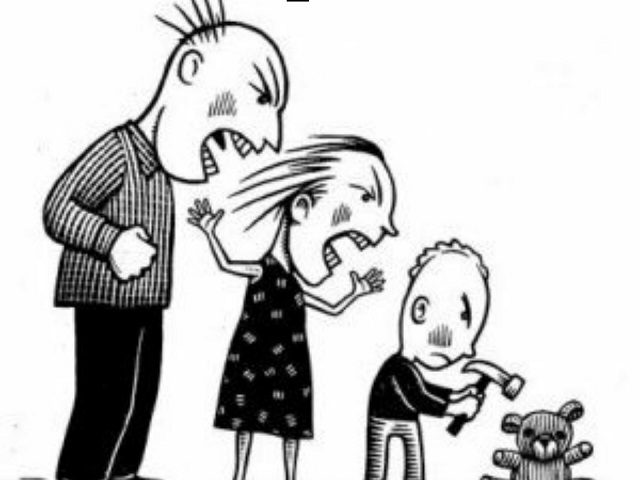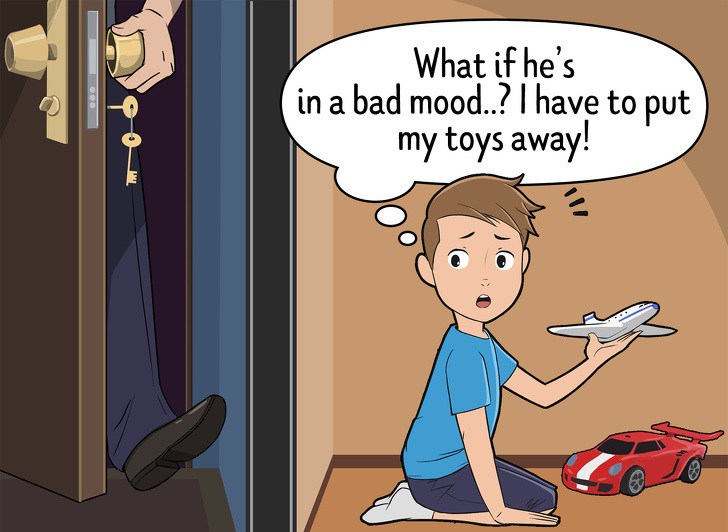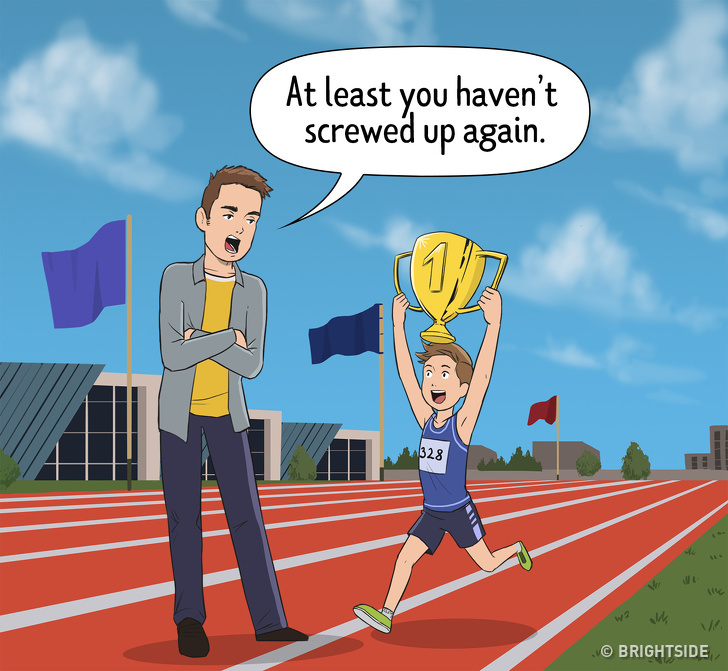It is always parental behavior that determines how a child will grow up. How parents treat their children impact a child’s personality and character in more ways than one. Child psychologists can easily differentiate between children who display similar emotional behavior. They can figure out which child is ungrateful and which child is the result of a negative and toxic parents. Given the fact that raising kids is no easy task hence, no one should have the right to judge but this is where there is a fine line between appropriate and inappropriate parental behavior.
Parental actions can ruin children’s lives

According to psychologists Seth Meyers and Preston Ni, parental actions can even ruin a child’s life. There is a fine line between parental mistakes and inappropriate behavior of toxic parents that can be bad for the child. Here is some information on how to handle the toxic incidents that can harm anyone’s health especially children.
1. Love me and also be afraid of me

As surprising as it sounds to some, there are kids with toxic parents who can easily figure out the mood of the parents by actions like dropped keys, how they walk or the scraping of their feet. It is somewhat tuned into their psyche making them live in fear and apprehension. This is because for some toxic parents there is no love and attention is the same as an emotional attack. Such parents usually take offense when their actions are met with suspicion.
2. You should manage your problems like an adult but don’t expect to have any rights

In many toxic families, parents make their children share the responsibilities of the household and even demand they do so. They may be forced to listen to complaints, make adjustments within the tense atmosphere of the household, get involved in scandalous parental behavior. They will be made to think from the perspective of the parents and be expected to console. They will be made to get involved in adult conflicts and expected to help and even tolerate such situations. Yet when it comes to their own rights, they are simply struck down and put in their place. They won’t even be allowed an opinion.
There are several toxic parents who attribute their stress and tension to their children. A child is made to believe that it is their burden and behavior that makes a parent resort to drinking alcohol for claiming themselves down or even smoking. Their anger and irritability will be directed to the children as a cause.
3. “Make sure you become the best but don’t think you are that special”

There are toxic parents who suffer from narcissism and even suffer from an ego war with their children. Such parents want to see their kids performing well so they can show off, but when it comes to praising the kid, it doesn’t happen. The child is snubbed and made to feel that their accomplishment wasn’t that great. In fact, the child’s achievement is taken for granted. When such behavior is laced with discouraging comments, it can ruin a child’s life and make them feel that they are a constant disappointment to their family.
4. “Be frank and honest with me but don’t be surprised when I criticize you.”

Toxic parents insist that they are friends with their children and force them to open up and be honest about their life. Yet when the child does so, they are made to feel extremely guilty with accusations of doing wrong. This is a double edged sword where if the child clams up from such behavior, the child is made to feel guilty about not wanting to be close to the parent. Such information is also used against the child in various situations.
5. “You’re bad so don’t even try to improve.”

A toxic parent will always demotivate a child and make them feel that they are no good. It is bad for the self-esteem of the child but the main reason parents do this is to remain in control. Toxic parents are forever speaking about the child’s mistakes and their appearance. Even if there are no flaws to point out, the parents make them up.
It is a common problem for some parents to take their temper out on their children because of their failures and stress at work or home. They may do so in a number of ways but the most damaging one is to give a child an inferiority complex. Some parents who may be failures themselves can’t bear to see their child succeed. They are not ready to bear up a child who is confident and may start exerting his own willpower.
